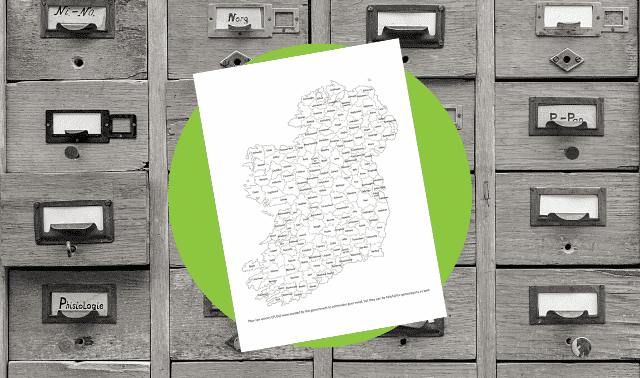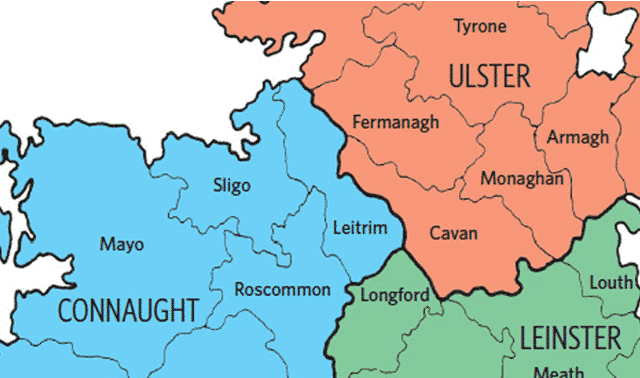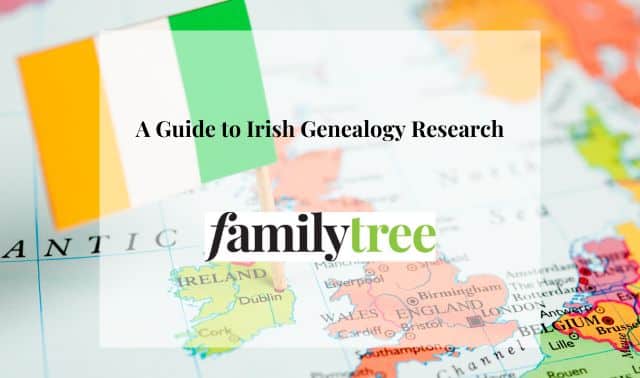Sign up for the Family Tree Newsletter! Plus, you’ll receive our 10 Essential Genealogy Research Forms PDF as a special thank you.
Get Your Free Genealogy Forms
"*" indicates required fields

Irish research has a (somewhat justified) reputation for being difficult. Time, armed conflict and natural disasters have destroyed many records over the years. But you can still find your ancestors’ records by knowing where and when they lived.
Poor law unions (PLUs), designed by the British government to administer services for the poor, are central to this research. Although no longer in use, PLUs served as the basis for superintendent registrar’s districts. Ireland create those districts when it began its genealogically crucial civil registration system in 1864. The two kinds of districts shared boundaries and are identical, from a family historian’s perspective. By knowing the PLU your ancestor lived in, you can find him in Ireland’s civil birth, marriage and death records.
The map displays PLU boundaries (and thus, the superintendent registrar’s district boundaries) used in the civil registration system.
As you’ll note, PLUs varied in size. They were larger in the western part of the island (where population was more sparse), and smaller in the east (where the population was more dense).
Need to search PLUs more thoroughly? John Grenham has an interactive map on his website, where you can explore the place names, civil parishes and baronies in each PLU. You can also find links to each district’s collection of digitized, searchable civil records at the General Register Office’s website.
For more information on PLUs, civil registration records and other crucial aspects of researching your Irish ancestors, consult The Family Tree Irish Genealogy Guide by Claire Santry, a comprehensive guide to identifying immigrant ancestors and tracing them back to Ireland.
Last updated: March 2023










